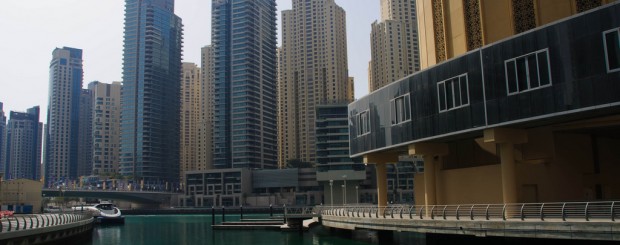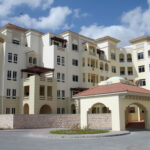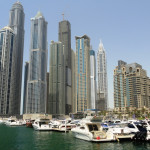The Mystery of Free Zones in Dubai Explained
What is a free zone?
Any foreign company that intends to enter the Dubai market has two options for setting up a business: the company can be set up as a Dubai Limited Liability Company with a license to operate anywhere within the UAE, or the company can be registered with one of the many free zones in Dubai.
A free zone is a designated area within the country in which businesses are subject to minimal or no taxation in order to boost economic activity. Free zones that are trade specific are allowed to receive, handle, manufacture, process, or re-export goods without the intervention of customs authorities.
Free zones are specifically designed to encourage foreign investment by allowing 100% ownership to expatriates and a variety of business incentives aimed at streamlining efficient business practices for companies set up within the free zone. In the UAE, free zones may be industry specific or may be attached to a port.
How does a free zone operate?
Companies set up in free zones are treated as offshore companies. Free zones are best suited to companies that intend to use the UAE for regional manufacturing or as a distribution base with the bulk of their business outside the UAE.
Although the registration, setup process, and paperwork vary for different free zones, the basic requirements for eligibility are the same:
- A free zone company must have a trade license in the intended activity of its free zone. This license needs to be renewed annually.
- The free zone company must have an office with its business name within the free zone. Rent for this space is annually renewable.
- The company must hire a manager to act as its legal representative.
- Minimum share capital requirements apply for setting up a free zone business
- The company must have at least one shareholder.
- The company is not allowed to trade outside the free zone without hiring a local distributor.
The process of setting up a free zone company is fairly straight forward. Below are the basic steps, although some free zones may add or remove a couple of these.
- Decide on the shareholder. — This can be an individual or a company. Free zone companies with one share holder are called Free Zone Establishments (FZE); those with more than one shareholder are referred to as Free Zone Companies (FZCo) and will have the suffix FZ-LLC.
- Decide on your share capital. — This is the minimum amount required to start-up a business, and in some free zones, this amount may be per shareholder or the total amount for the company.
- Decide on a name and the manager for your company. — His name will appear on the trade license. You will need to submit three alternatives for the name. The final decision will be made by the free zone authority.
- Submit an application for the name and desired activity for the company to the free zone authority, along with passport copies of the shareholder(s) and the manager.
- A preliminary approval will be granted and a letter to open a bank account will be issued so that the investor capital can be deposited into the account. This capital needs to be retained until the License is issued.
- Once the capital has been deposited, the bank will issue a letter which needs to be submitted to the free zone authority to complete the legalities for the registration process. This will include paying the fees for the License and registration, signing a lease deed for the office space, paying the rent, and signing a Memorandum of Association for the new company.
- Once the registration process is complete, a license will be issued and you are ready to start your business. The process usually takes up to a month.
Pros and Cons of Setting Up a Free Zone Business
Free zones in Dubai have been designed to provide an efficient and supportive business environment for their registered companies with the direct goal of attracting greater direct foreign investment. With this goal in mind, free zones offer companies a range of very lucrative benefits.
However, there are restrictions to doing business with a free zone company, so it is important to understand both the pros and cons before you decide to start-up a new business.
Pros
- 100% foreign ownership – Foreigners with free zone companies are allowed full ownership of their businesses without the requirement of having a local partner. With a Dubai Limited Liability Company, owners are allowed a maximum stake of 49% with the majority holding belonging to a local partner or sponsor.
- Significant tax exemptions – Businesses within a free zone are exempt from paying taxes for anywhere from 10-15 years, and this exemption can be extended at the end of that period.
- 100% repatriation of capital and profits – This is a big advantage as all the profits earned from the business can be repatriated back to your home country if so desired.
- Excellent administrative and business services – Companies set up within free zones are provided with excellent amenities and infrastructure, providing them with the perfect platform from which to conduct their business.
Energy within free zones is abundant and inexpensive. Recruitment procedures are efficient, ensuring the availability of a skilled and experienced workforce. Additionally, free zones receive a lot of government support with a high level of administrative support as well. - 24-hour operation – Free zone companies can operate 24 hours a day
Cons
- Trade restrictions: A free zone company is restricted to conducting its business within the free zone itself, and cannot expand into other markets within the UAE. They can undertake local business only through appointed local distributors. Custom duty of 5% is applicable to all goods brought in for the local business. This is a huge restriction particularly if the business intent is to service the entire UAE market.
- Restrictions on type of business – Free zones are trade or industry specific and cater to a particular type of business. Therefore, the business activities for a free zone registered company are confined to the type of free zone in which the company has been set up. For example, a business set up in Dubai Internet City, one of the emirate’s leading technology hubs will need to restrict its activities to technology based activities.








